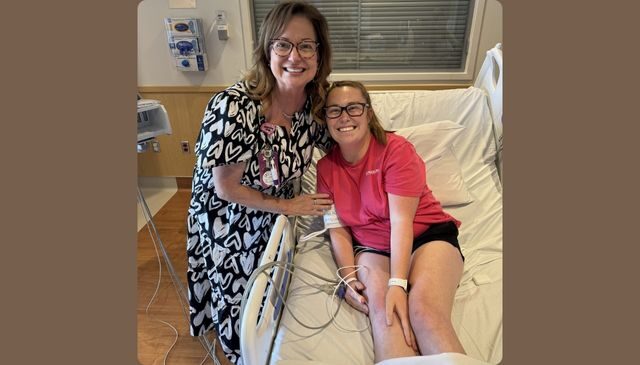
The list of people advocating on behalf of a critically ill patient is long. It includes parents, extended family, doctors, nurses and more. It also includes our school coordinators. This role is designed to set patients up for success as they reintegrate into their day-to-day life at school, and it is one that Alana Moser, PhD, LDT, CALT, CBIS, CBIST tackles with conviction.
A Passion for Education
Alana is a lifelong learner and has always loved education. She first began her career as a math teacher. After taking time off to stay home with her kids, she returned to a new opportunity, which combined English as a Second Language, Language Arts and Dyslexia. Through this, she obtained her License of Dyslexia Therapy and discovered a passion for dyslexia. She returned the next year as a dyslexia specialist and ultimately came to Texas Children’s to work as a school coordinator, assisting patients with the transition back into their homes and schools.
Her work began in the adolescent medicine and inpatient rehab units. Many of her patients on the rehab unit were recovering from Traumatic Brain Injuries, which became her second area of specialization. “I found a lot of similarities to dyslexia,” said Alana. She worked with Dr. Niedzwecki to create a school rubric to assess kids with TBIs and determine their needs when they return to school.
“Education is what a child does, it’s their job. So being able to support them and give them that sense that there’s a future for them. They need to know that we’re not giving up on them, that the harder they work, they’ll have something to return to. It’s so important and so valuable,” said Alana.
The Work is Worth it
She works closely with the volunteer tutors who are in the trenches, assisting the short-term patients with their work, most often in math and science. Many of the volunteers are actually majors in engineering and biology and are more than happy to oblige. These volunteers also happily work with siblings or even parents seeking certifications. “We’re able to set the family up for greater success,” Alana stated.
However, the crux of what she does is ensure a smooth transition for her patients returning to school. Alana walks them through the child’s diagnosis, advising the families and faculty if the child will need a 504 or an IEP and often attends Admission Review Dismissal (ARD) meetings. “We do a lot of education with the schools, preparing them for the child returning to them. They are a very different child,” explained Alana. “We also spend a great deal of time educating the family on the new diagnosis and how to obtain educational services. This can take time because they are mourning the child that was.”
It can be challenging conveying the gravity of the situation for these children. “Some schools, it’s almost like they think they’ve been on vacation,” said Alana. “Children will have strokes, and they’re probably functioning on a first or second grade level and the school still wants them to take their end-of-course exams to graduate.”
Alana has tried to get proactive. She has emailed every district in Region 4, which is about 50, to set up presentations on traumatic brain injuries. She got one response last year. This year, she got four. Despite the uphill battle, she’s not giving up.
“It’s very rewarding to be able to see the progress they’re making and can continue to make,” said Alana of her patients. They really, really do put in a lot of work and they are so resilient. It’s just so inspiring.”

